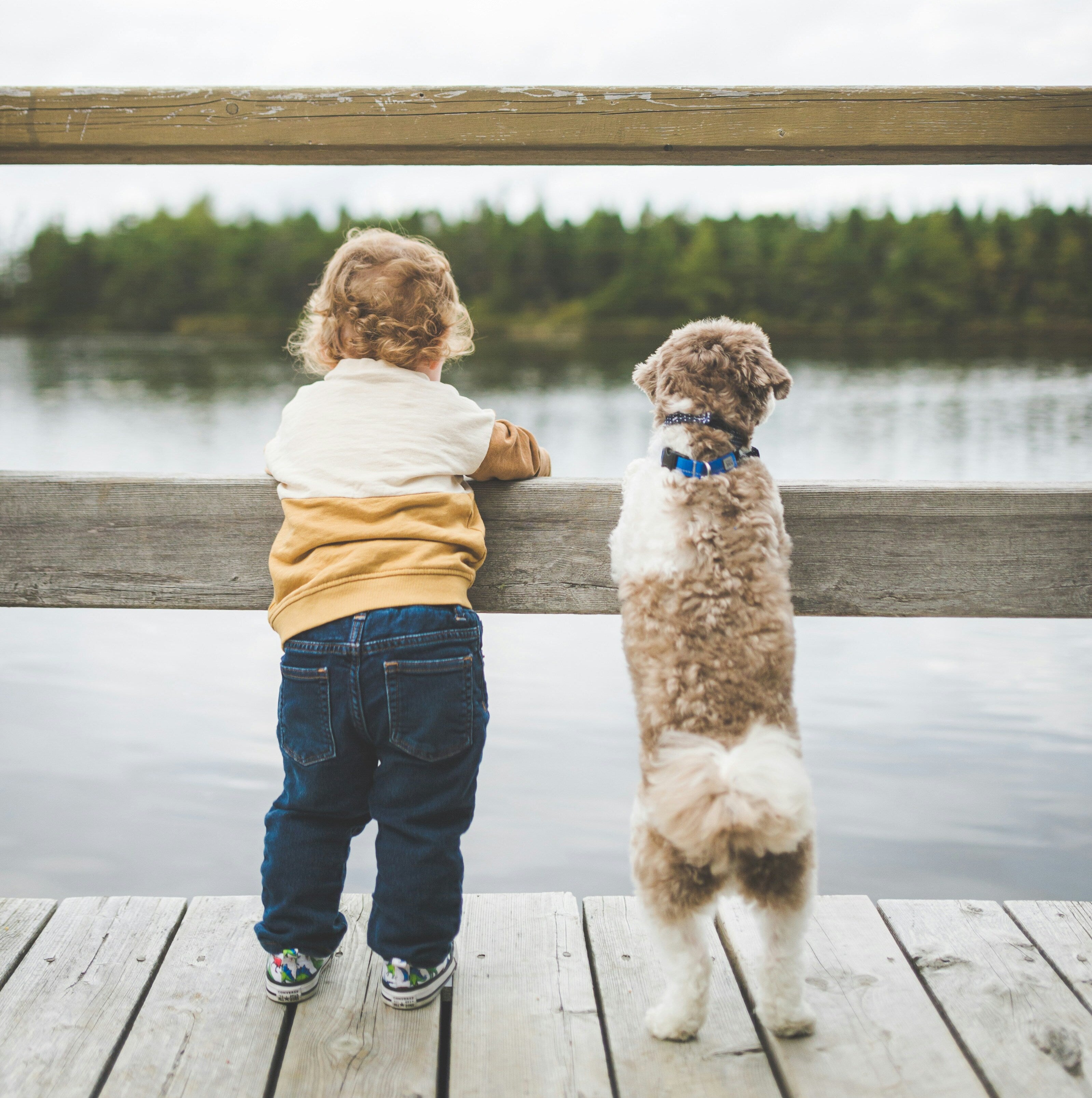Until you have loved an animal, a part of your soul will remain asleep
Anatole France
Living with an animal - especially a cat or a dog, the most common domestic pets - brings numerous benefits, happiness, pleasure and learning to the little ones in the house.
In this article we will tell you some of the advantages of growing up in the company of animals and also a handful of good tips to encourage their integration and care.
Benefits of children growing up with an animal

- Happiness at home : A study carried out by the Affinity Foundation on animal bonding highlights that those who had contact with a pet in childhood have fewer difficulties maintaining positive interpersonal relationships, experience less sadness and feelings of threat and constantly learn things. Animals are considered
- Emotional support : from this study it is clear that one in two children (46%) perceives the animal as their main source of emotional support after their parents. They help them overcome grief and fear, and also give them affection, physical contact and comfort in the face of upsets and problems. 50% also consider dogs and cats their friendship and play companions.
- Development of valuable qualities : pets teach children many important lessons about life, love and friendship, instilling compassion, consideration for others or empathy through their interaction. They also encourage them to gain responsibility, autonomy and confidence , since they will have to adapt their routine to them and complete tasks such as serving them water and food, changing the litter box or taking them for a walk.
- Better academic performance and communication : Studies suggest that having a pet can improve the academic performance of children, who can read their work and homework out loud to their dog or cat without feeling judged. They also improve family communication and socialization and in the case of children with problems such as ADHD, dogs are part of therapeutic programs.
- Connection with other living beings and greater environmental awareness : children who live with animals will develop great sensitivity towards them and their suffering, cultivating positive environmental behaviors and respect for other living beings.
- Positive impact on health: being around animals regulates heart rate and blood pressure, reduces stress, encourages an active lifestyle - by taking a dog for walks, running and playing and being in the sun or outdoors - . Some studies suggest that exposure to dogs and cats can even reduce allergies in children.
- Intellectual and cognitive development : having an animal at home from when the child is young stimulates the development of language and verbal skills, as well as psychomotor skills, attention, memory, categorization, attention or self-control, precision, speed, memory, categorization, attention and self-control.
Tips to facilitate the adaptation between a child and an animal

- Adapt the child's responsibilities to their age : the little ones can serve them water or food or help them be brushed and washed. The elderly can take the dog out, accompany the animals to the vet or be in charge of administering their medicines.
- Be careful with certain hygiene guidelines for the animal , especially with younger children. Deworming is key, following the vaccination schedule, ensuring good maintenance of the litter box or cutting the cats' nails regularly to avoid scratches while playing.
- Accustom the animal and the child gradually and carefully : if there is a pregnant woman, it is advisable to gradually accustom the kitten or puppy to the crib, to smells such as the baby's cologne, leave him his blanket or muslin, make the gradual changes , allows the animal to investigate and be aware of its behavioral changes.
- If your cat is jealous , Animal Expert recommends “using tasty treats, caresses or kind words”, as well as applying appeasing pheromones to improve its well-being using applicators or collars. If he is upset, leave him alone to provide calm and security.
- Teach your children that animals have their behaviors and instincts, that they are living beings with their own personality and that it is important not to humanize them, take good care of them, guarantee them the greatest possible well-being and respect them at all times. For example, there are cats that need a lot of their own space.
- When children are very young, control and monitor their interaction , always being present, in case the animal reacts with fear or in a defensive attitude when faced with a negative stimulus. You can also teach children to approach, calmly and calmly.
- Children should wash their hands after playing, petting or hugging their pet , especially before eating, and not touch their mucous membranes.
If you have any questions, consult both your pediatrician and your veterinarian. And if the animal has behavioral problems, you can always turn to an ethologist.
Remember that life with animals is much more beautiful.


0 comments